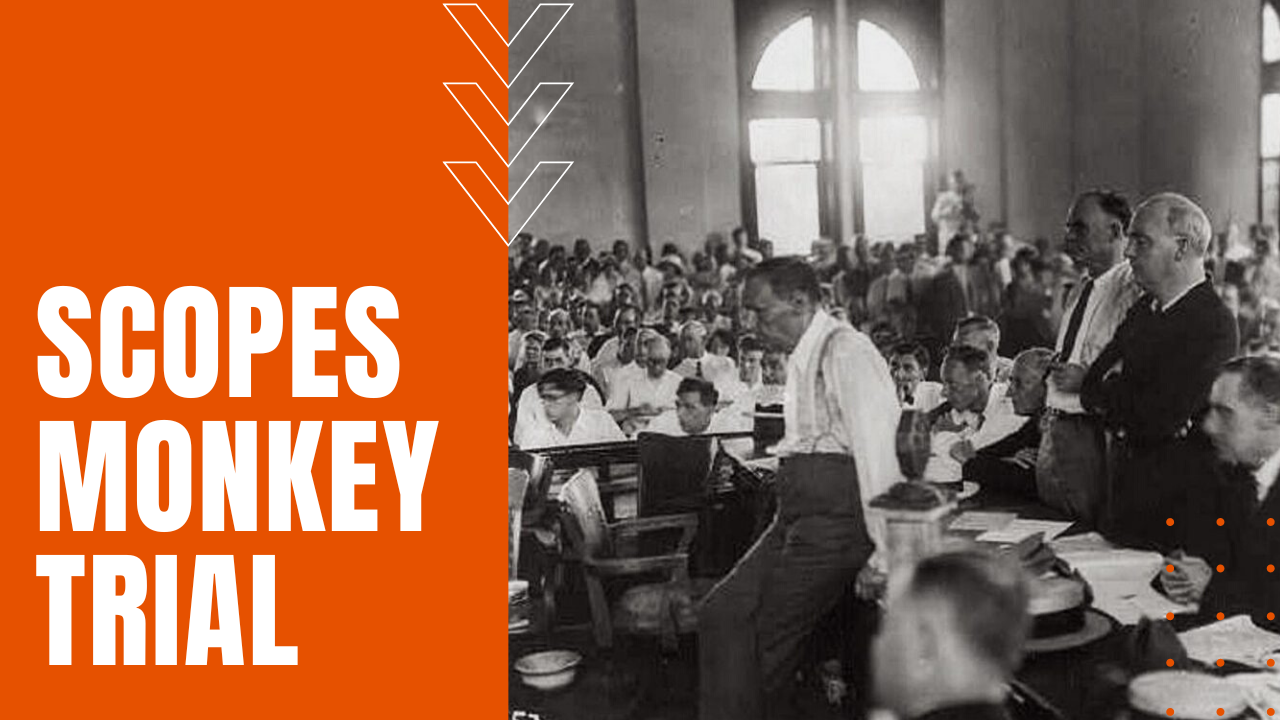Scopes Monkey Trial: Evolutionists vs Christian Fundamentalists

In an ongoing debate between Christian fundamentalists and the so-called modernist movement of the late 19th and early 20th centuries, the issue of evolution versus biblical creation came to a head in 1925 in Dayton Tennessee, after the Tennessee House of Representatives passed a bill outlawing the teaching of Darwinian evolution in public schools.
In a publicity stunt by the town of Dayton and the recently-formed ACLU, intended to test the enforceability of the so-called Butler Act, high school science teacher, John Scopes, freely admitted to teaching evolution in his classrooms, which brought two of the nation’s top orators together for the show trial of the century.
Who Represented John Scopes During the Scopes Monkey Trial?
Made famous by his defense in the notorious Leopold and Loeb murder trial, Clarence Darrow — a staunch agnostic — defended Scopes against the three-time presidential nominee and anti-evolutionist William Jennings Bryan, who presented for the prosecution. The trial would prove to be the only time in Darrow’s storied career that he ever gave legal aid for free.
In an almost circus-like atmosphere—replete with barbecues, concessions and carnival games—the trial began in early May, reaching its zenith when Bryan took the stand as an expert witness on the Bible. Darrow went on to interrogate Bryan about his knowledge of world religions and modern science, proving decisively that Bryan was woefully ill-informed about both fields of study.
What was the Result of the Scopes Monkey Trial?
By the end of the day, both men were reduced to shouting matches and threats of violence, leading Darrow to suggest in the interest of time that his client should be found guilty. The move prevented Bryan from making his closing statement, and when the jury took only nine minutes to find Scopes guilty, the grandstanding school teacher was fined $100, which was later overturned on appeal.
While Scopes lost the trial, Christian fundamentalists lost even more in the broader court of public opinion, after being cast by famed journalist H.L. Mencken as uneducated rubes in light of modern scientific evidence.
After the trial, Bryan began drafting his unused closing statement into a speech for his political rallies, only to die in his sleep while still in the small town of Dayton. For his part in the show trial, Scopes was offered a new teaching contract, but instead earned a post-doctoral degree in geology from the University of Chicago, before beginning a long career as a petroleum engineer.
The Trial’s Relevance Today
The trial continues to resonate to this day, setting the stage for the evangelical movement of the 1970s and 80s, while igniting ongoing culture wars between the Christian right and left on issues such as abortion, women’s rights and the LBGTQ movement, making the Scopes Monkey Trial one of the top courtroom dramas in American history.
